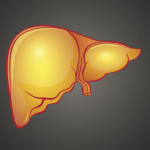Irregular meal times and skipping meals can increase the risk of developing metabolic dysfunction-associated steatotic liver disease (MASLD), according to study findings published in Gut. In contrast, intermittent fasting and time-restricted eating may improve liver health.
MASLD, the new name for non-alcoholic fatty liver disease (NAFLD), and its more severe form, metabolic dysfunction-associated steatohepatitis (MASH, formerly known as non-alcoholic steatohepatitis, or NASH), are responsible for a growing proportion of advanced liver disease worldwide. As a result of inflammation, the buildup of fat in the liver (steatosis) can lead to fibrosis, cirrhosis and even liver cancer. Linked to obesity and type 2 diabetes, fatty liver is increasingly recognized as a metabolic disorder. With no effective approved medical therapies, disease management is dependent on lifestyle changes such as weight loss and exercise.
Besides eating ultra-processed and other unhealthy foods, fatty liver may be driven by an irregular eating schedule. Using published research, David Ray, PhD, of the University of Oxford, and colleagues analyzed the impact of various problematic dietary practices on MASLD risk. They summarized the effects of irregular meal timing, forgoing breakfast and nighttime snacking and also assessed the impact of intermittent fasting and time-restricted eating in human studies of metabolic disease.
The researchers found that irregular meal patterns, skipping breakfast and nighttime eating are linked to a greater risk of MASLD and other metabolic conditions. On the other hand, eating all meals earlier in the day seemed to benefit metabolic health.
“Food intake is an extremely powerful external timing cue, which serves to synchronize rhythms of hepatic energy metabolism to fed-fasted cycles, independently of the light-dark cycle,” wrote the study authors. “As a result, certain non-physiological eating behaviors, including missing breakfast, irregular meal patterns and nighttime snacking, are closely associated with an adverse metabolic and liver phenotype.”
The researchers analyzed studies that examined the impact of fasting for Ramadan on liver health. Fasting from dawn to dusk for Ramadan was linked to weight loss, reduced insulin resistance and improved liver function.
Next, the research team assessed the impact of intermittent fasting and time-restricted eating on MASLD development. The first form of fasting involves reducing caloric intake for short periods, while the second involves eating without restriction but only within specific periods of time.
Across multiple human studies, intermittent fasting was found to be safe for up to six months. Besides weight loss due to calorie reduction, people may also experience other benefits that improve heart health and immune function. Moreover, intermittent fasting reduced liver fat and improved lipid profiles in people with MASLD.
For people practicing time-restricted eating, a window of six to 10 hours is well tolerated and offers the most clinical benefit. The limited eating window causes most people to lower their caloric intake by about 30%.
Meta-analyses of several randomized clinical trials have shown that intermittent fasting leads to more weight loss than time-restricted eating. However, the latter is linked to better heart health, metabolism and lower liver fat.
“Time-restricted eating has been shown in clinical trials to be a safe and effective way to reduce steatosis and improve multiple domains of the metabolic syndrome,” wrote the researchers. “Taken together, there is a strong rationale for further detailed exploration of the liver-specific benefits of time-restricted eating, and this dietary strategy may emerge as a promising management option for patients with NAFLD and NASH.”
Click here for more news about fatty liver disease.







Comments
Comments